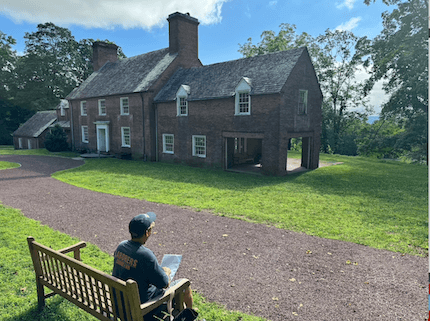
Nyack High School Jazz Band
by Rick Tannenbaum
My daughter learned a hard lesson in school politics this year. She attends Nyack Middle School, where she is an eighth grader. She plays violin seriously. She has a private teacher. Lessons twice a week for the last four years. And she spends summers playing music at sleep-away camps.
But this past year of music class has been a source of education in politics more than in music. The lesson has been that rewards seemingly go to students whose parents are paying district school teachers for extra help.
She had been unable to understand why she was no longer being awarded with first and second chair at school concerts, which has been the case since X year. She was still working hard, practicing every night, and participating in after-school orchestra. One day she asked me why the students being selected for the best spots also seemed (coincidentally?) to be taking private music lessons from other music teachers in the district.
My initial reaction then, and now, is that district teachers tutoring district students for financial gain is a blatant conflict of interest. Apparently, the district once held the same belief. There was a policy that read: “Private employment: A Board member, officer or employee shall not engage in, solicit, negotiate for or promise to accept private employment when that employment or service creates a conflict with or impairs the proper discharge of his or her official duties.”
But then in May 2015, this phrase was added: “Without limiting the generality of the foregoing, administrators, teachers and teaching assistants shall not be involved in any private employment arrangements to tutor any student(s) during the time that the student(s) is(are) on their caseload or assigned to their class(es).”
I wasn’t aware of the change at the time. So recently I asked the board to rescind this policy, laying out for them why it is inappropriate to have a high school teacher charging a middle school student for private tuition when clearly that middle school student will be that high school teacher/tutor’s charge when she enters high school.
Music, like sports, is competitive. There are coveted chair assignments during orchestral concerts, which translate to solos, bids for all-county and all-state festivals, and potential scholarships and college recommendations. As soon as students begin a private, financially-based relationship with a teacher in the district, the playing field is no longer level.
Consider this: A middle school strings teacher is teaching a student who’s being tutored by the music chair at the high school. Can one really assume that the music teacher might not be inclined to reward the student in an effort to gain favor with the department chair?
A private music teacher can earn $50 for hourly lessons, meaning a private tutor teaching two weekly lessons can earn up to $4,000 annually, per student. This is a significant chunk of change, and it puts the tutor and the students’ parents into a serious financial arrangement. Our school board members like to say they believe all of the teachers have good ethics and make choices independent of their financial interests. I appreciate the sentiment. However, this is a systemic issue. How can the district possibly assure that no teacher favors a student with whom they have a private financial relationship? Recently, I put this dilemma to the board, asking them to re-think the policy by addressing this conflict of interest. They heard my arguments. I know they understood the nuances. In the end of the day, they brought in the high school chair of the music department — who has several paying students — to defend the practice. That told me everything. I suggested they hear from somebody without a financial stake in the outcome of their decision. The Board thought it unnecessary. I was very disappointed and believe the board is – pardon the pun – out of tune.
Rick Tannenbaum is the parent of a Nyack middle school student.








